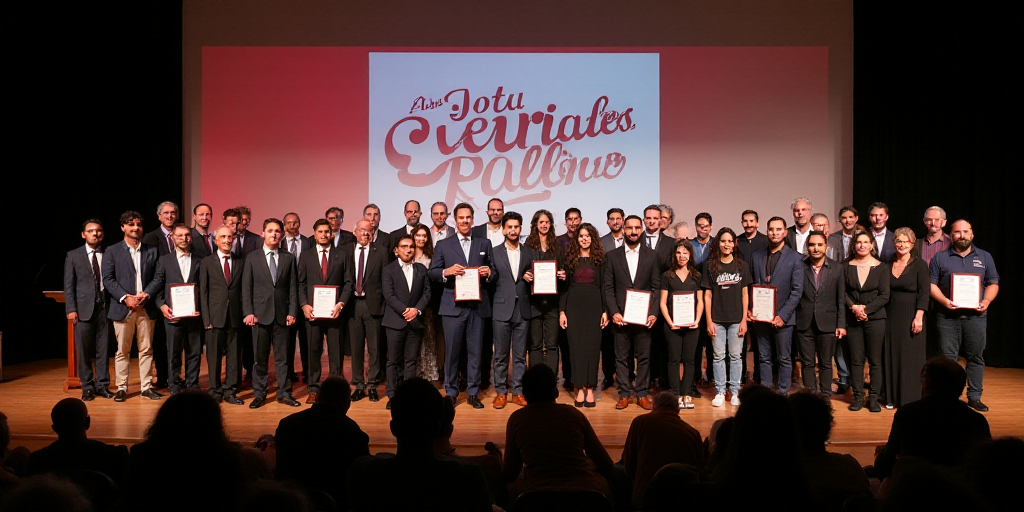Mexico’s Education Secretary Mario Delgado Outlines Literacy Goals
Mario Delgado Carrillo, the Secretary of Education for Mexico’s Federal Government, spoke at a forum in Puebla titled “Present and Future of Literacy in Mexico and the World.” He emphasized that with the support of Puebla, Chiapas, and other states, they aim to achieve the “White Flag” of literacy, recognizing the importance of education and embracing President Claudia Sheinbaum’s educational policy.
Delgado Carrillo’s Objectives
- Reduce illiteracy to less than 4% under President Sheinbaum’s leadership, completing the work initiated by José Vasconcelos a century ago.
- Highlight the significance of literacy in building community and standing against injustice and indifference.
Delgado Carrillo shared recent achievements: 23,000 women over 15 have learned to read since January, 47,000 completed primary education, and 75,000 obtained their secondary school certificate. He stressed that these daily victories build genuine transformation from the roots.
President Sheinbaum’s Representative and Puebla Governor Speak
Leticia Ramírez Amaya, General Coordinator of Intergovernmental Affairs for President Sheinbaum, emphasized that literacy among young adults and older individuals calls for collective commitment towards a more just and equitable society. She reaffirmed the pledge to open opportunities for more people to learn reading and writing, reducing illiteracy rates.
Alejandro Armenta, Governor of Puebla, highlighted that illiteracy is a result of inadequate governance. He stressed the social obligation to address this issue, noting that Puebla has around 300,000 residents who cannot read or write, placing it sixth nationally. Armenta emphasized the need for collective efforts to combat illiteracy in Puebla.
UNESCO Official and INEA Director Share Insights
Rosa Wolpert, the National Official of UNESCO, praised Puebla’s collaborative efforts in literacy, emphasizing education and literacy as powerful tools for peace-building and fostering values, equality, justice, non-discrimination, and tolerance.
Armando Contreras Castillo, Director of the National Institute for Adult Education (INEA), spoke about their 44-year commitment to educating young adults and older individuals, having taught over 13 million people. Currently, they have 257,125 individuals in literacy programs, aiming to break the 4% illiteracy barrier by August. They expect an illiteracy rate of 3.8% by year-end, making Mexico a literate nation.
Chiapas Governor and Puebla IEEA Director Join Efforts
Eduardo Ramírez Aguilar, Governor of Chiapas, discussed the “Chiapas Puede” program, targeting over 500,000 individuals to learn reading and writing with university and alfabetizador support. He underscored that overcoming ignorance, alongside President Sheinbaum’s government, is their most crucial battle.
Andrés Morales Zayas, Director of Puebla’s Institute for Adult Education (IEEA), emphasized the collaboration between all levels of government, private sector, and institutions to tackle literacy challenges from the ground up.
Personal Testimony of Literacy Achievement
Alma Reina Rojas, from San Andrés Azumiatla in Puebla City, shared her literacy journey. Initially challenging, learning to read and write required immense effort. Today, she can read and write, recognizing more opportunities and navigating different places.
Key Questions and Answers
- What is the main goal of Mexico’s literacy campaign? Reduce illiteracy to less than 4% under President Claudia Sheinbaum’s leadership, completing the work initiated by José Vasconcelos a century ago.
- Who are the key figures supporting this literacy campaign? Mexico’s Education Secretary Mario Delgado Carrillo, President Claudia Sheinbaum, Governors Alejandro Armenta (Puebla) and Eduardo Ramírez Aguilar (Chiapas), UNESCO’s Rosa Wolpert, INEA’s Armando Contreras Castillo, and IEEA’s Andrés Morales Zayas.
- What recent achievements have been made in literacy efforts? Over 23,000 women over 15 have learned to read, 47,000 completed primary education, and 75,000 obtained their secondary school certificate.
- Why is literacy crucial according to the speakers? Literacy builds community, combats injustice and indifference, fosters values, equality, justice, non-discrimination, and tolerance.






